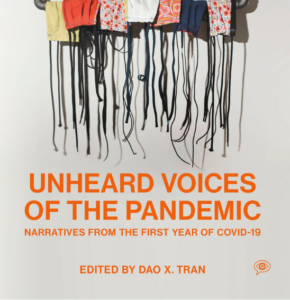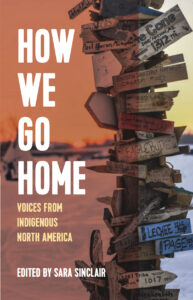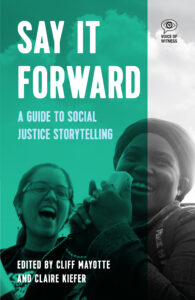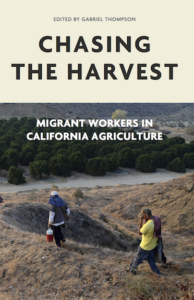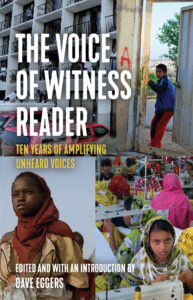About the Book
The men and women in this oral history collection reveal the human rights abuses occurring behind the scenes of the global economy. These narrators—including phone manufacturers in China, copper miners in Zambia, garment workers in Bangladesh, and farmers around the world—reveal the secret history of the things we buy, including lives and communities devastated by low wages, environmental degradation, and political repression.
In this updated edition Goria revisits narrators and their struggles, which are shaping the world. Sweeping in scope and rich in detail, these stories portray the interconnectivity of people struggling to support themselves and their families. The oral histories in Invisible Hands provide a point of entry for understanding the global economy from a human perspective, creating an opening for critical exploration of the ethical, moral, and legal issues connected to the system.
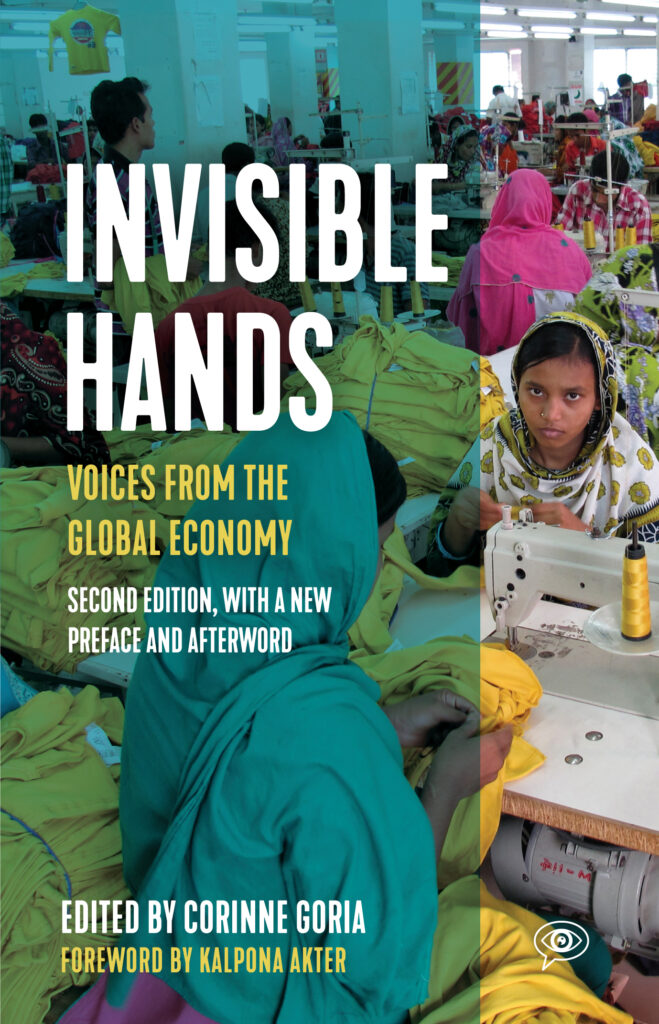
Narrators Include:
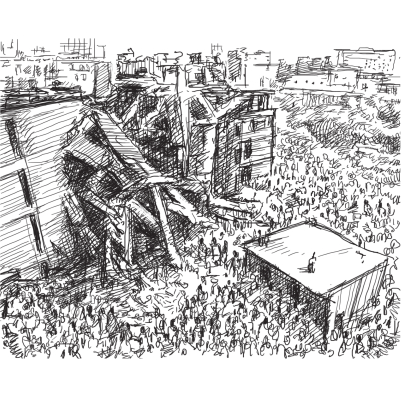
KALPONA, a leading Bangladeshi labor organizer who led her first strike at fifteen while working in a garment factory. As an adult, she now faces arrest, torture, and constant surveillance for her work.

ALBERT, a copper miner in Zambia who, during a wage protest, was shot by representatives of the Chinese-owned mining company that he worked for. Desperate for a living wage, Albert attempted to resume work with the company after months in the hospital.
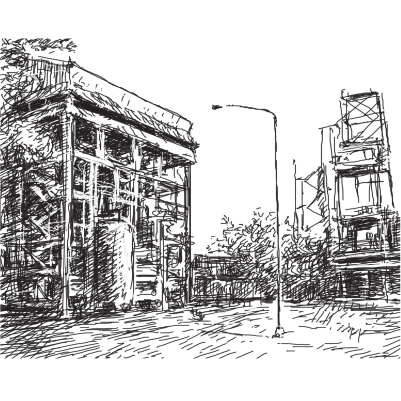
SANJAY, who grew up in the shadow of the Bhopal chemical disaster, one of the worst industrial accidents in history. As an adult, Sanjay fights for recognition of the damage still wrought on his community even decades after the gas leak that killed thousands.
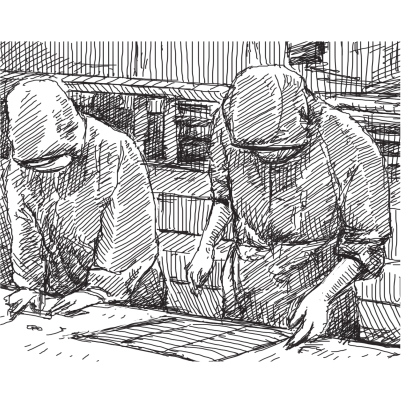
HYE-KYEONG, who, as a teenager, began assembling circuit boards for an international electronics company based in Seoul. Though she was paid a living wage, Hye-Kyeong was one of many co-workers who developed cancers or tumors at a young age.
About the Editor & Foreword Author:
Corinne Goria is a writer, lawyer and Assistant Editor of Underground America: Narratives of Undocumented Lives, Voice of Witness’ collection of oral histories from undocumented immigrants in the United States. She is based in San Diego.
Kalpona Akter is an internationally-recognized labor rights advocate. She is the executive director of the Bangladesh Center for Worker Solidarity (BCWS) and is herself a former child garment worker. BCWS is regarded by the international labor rights movement as among the most effective grassroots labor organizations in Bangladesh. Kalpona’s work has been covered extensively by local and international media, including ABC, BBC, the New York Times, and the Wall Street Journal.
Praise for Invisible Hands:
The great service that Corinne Goria and the Voice of Witness project has done with Invisible Hands is to transform these people from abstractions to real people, people who have made and continue to make choices, people whose actions in the coming decades will have the most important consequences for the quality of life and the very survival of life on earth for all of us.
Rick Ayers for the Huffington Post
Goria dramatically acknowledges the legion of overlooked workers who ‘produce the things we use every day,’ expressed through the carefully chosen words of crusaders who share each other’s individual hopes and hardships. Powerful and revealing.
Kirkus Reviews
Goria gives us the human voices of suffering and stories from the factories and mines and workshops and farms around the world that produce the daily bread of America. Which is to say that their sweat and devastatingly painful days enrich all of us who read these pages – and for their pain we are responsible. This book is an epic, in many ways, showing us how, in Dostoevsky’s words, even when no one may be guilty everyone is still responsible for what occurs around us. This book is a very compelling, necessary work.
Ilya Kaminsky, Poet & Author of Dancing in Odessa
In order to conduct interviews of those most affected by human rights crises in the global economy, Voice of Witness has partnered with numerous organizations and scholars, among them:
International Labor Rights Forum (ILRF)
Basel Action Network (BAN)
Students and Scholars Against Corporate Misbehavior (SACOM) (Hong Kong)
Bangladesh Centre for Worker Solidarity (BCWIS)
Citizens for a Better Environment (Zambia),
Annie Leonard’s The Story of Stuff Project
Pesticide Action Network (PANNA)
EcoViva (El Salvador)
Centro de Apoyo del Trabajador (Puebla, Mexico)
NISGUA (Guatemala)
International Coalition for Responsible Technology (ICRT)
Uzbek-German Human Rights Forum
International Campaign for Justice in Bhopal
International Longshore & Warehouse Workers’ Union (ILWU)
Supporters for the Health And Rights of People in the Semiconductor industry (SHARPS)
California Rural Legal Assistance
Dr. Lisa Rofel, Professor and Chair, Department of Anthropology, UC Santa Cruz; Dr. Ching Kwan Lee, Professor of Sociology at UCLA; Dr. Alastair Fraser, Professor of Political Science, Cambridge University; Dr. Miles Larmer, University of Sheffield; and Dr. Gregor Murray of the University of Montreal are among the contributing scholars for this book.
This project was made possible in part by the National Endowment for the Arts.
Related Resources

View the Lesson Plans
The lessons use oral history to promote a nuanced understanding of human rights violations that workers in the global economy experience.
Book Club Discussion Questions
Use these questions to encourage meaningful conversations about the book.







